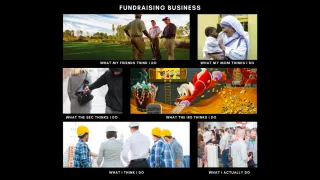Retoro Capitals Articles To Educate And Inspire

THE INVESTOR QUIZ YOU DIDN'T REALIZE YOU NEEDED
Uncover Your Real Estate Blind Spot: Are You the Boss, the Bank, or the Backseat? Most investors never stop to ask if they’re structuring their real estate roles to match their strengths. In this post... ...more
Passive Real Estate Investing
May 27, 2025•8 min read

Stop Trying to Predict Markets: Here’s What Actually Works
Fancy predictions don’t build wealth. Sound strategies do. In this article, we break down why market forecasts, hedge fund bets, and trendy predictions often fail to deliver. Learn why boring, fundame... ...more
Passive Real Estate Investing
May 14, 2025•7 min read

Taxes Made Simple #1
Even a Kid Can Understand Taxes: How Smart Investors Use the Tax Code to Build Wealth The tax code feels overwhelming, but once you see how it really works, it can actually become one of your most pow... ...more
Passive Real Estate Investing
April 28, 2025•6 min read

COSTLY INVESTING MISTAKES MOST MAKE BUT CAN'T AFFORD
Chasing high returns can feel exciting until your equity deals stop cash flowing or get wiped out entirely. In this post, we break down the critical mindset shift that wealthy investors make: prioriti... ...more
Passive Real Estate Investing
April 14, 2025•6 min read

Behind Every Passive Investor is an Active Business Owner
Many high-achieving professionals believe they need to control every deal to build wealth, but that mindset can lead to burnout, not freedom. In this post, we break down why the most successful invest... ...more
Passive Real Estate Investing
April 14, 2025•5 min read

NEW SEC RULE CHANGE
Learn about the latest SEC update on accredited investor verification for 506(c) deals. No major rule changes, just a streamlined process for high-net-worth investors. Find out what it means for you. ...more
Passive Real Estate Investing
March 18, 2025•5 min read

